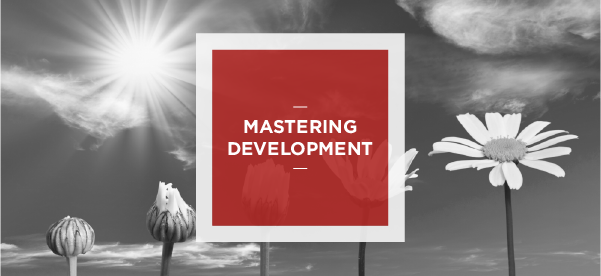Leadership, team, and organizational development efforts are often challenged by being disconnected from the strategy of the organization, too content-centered, and not adaptable to changing needs of a dynamic environment.
Development occurs through many different yet integrated methods. While formal training is one aspect, it is only a piece of what people need to flourish as leaders and team members. “On-the-job” training, special project work, mentoring, and coaching are essential elements of a comprehensive and holistic approach to development.
An important shift for leaders is from doing and driving to being, thinking, and empowering – to being self-aware enough to recognize that their knowledge and skills may no longer be the key mindsets and competencies that will enable them to be successful.
At Emergent, we believe everyone is a leader and everyone can evolve and transform their thinking, being, and behaving. You are never too young to lead and you’re never too old to learn.
Following are some frequently asked questions to help you identify an optimal development strategy:
- What is leadership and how do we strengthen it? Leadership is inspiring and influencing yourself and others to take purposeful action. Leadership can be developed by focusing on competency and capability along with courage, compassion, and consciousness. Effective leadership development is holistic and deals with the totality of being.
- What is the best way to develop leadership? Some better ways to develop leadership to become more effective and improve performance include:
- Putting people in roles and assignments that facilitate learning and growth in the areas necessary to support the business situation and strategy.
- Providing content training and support for gap areas.
- Placing emphasis on learning how to learn. Because we operate in fast-paced, complex worlds, learning to learn provides the best chance for adaptability and agility.
- What are some of the key competencies for leaders to focus on? Being purposeful and visionary, having a strategic focus, being a systems thinker, having high emotional intelligence, and being able to foster team play are the top competencies for enduring and sustainable effectiveness.
- What is some practical advice you would give to improve leaders’ effectiveness? “Slow down to go faster.” Take time for stillness and deep thinking and listening. Be curious, question your beliefs and anticipate changes in thinking necessary for growth. Have the courage to give timely and authentic feedback. And never stop learning.
This article originally appeared in the March 29, 2021 issue of The Central New York Business Journal.

Comments (2)
this is ok but I also think that you have to want to be a leader and that is usually something inside of you. Some people are meant for leadership and some people are just happy to be part of the team.
The Un-Leader
I think we sometimes confuse a position of authority with one of leadership. Some of the (our) best leaders are people who are not in a formal position of getting “their” people to perform. We have individuals whom we all look up to whether for a certain skill, certain knowledge or certain abilities. Very often those people are not in what we call leadership positions, and yet their actions, their wisdom and their guidance help us, and our organization to succeed where it may otherwise have failed. Maybe we call them un-leaders, or non-leaders… or maybe just good employees; or our go-to’s.
I think when considering our role of leadership in OneGroup, we should all consider what we have to offer; and we should offer it. We should consider where we may be weak, and get help in strengthening ourselves so that when the time comes, we have it to offer (or we at least know where to get it). Everyone has leadership to offer at some time, in some way.